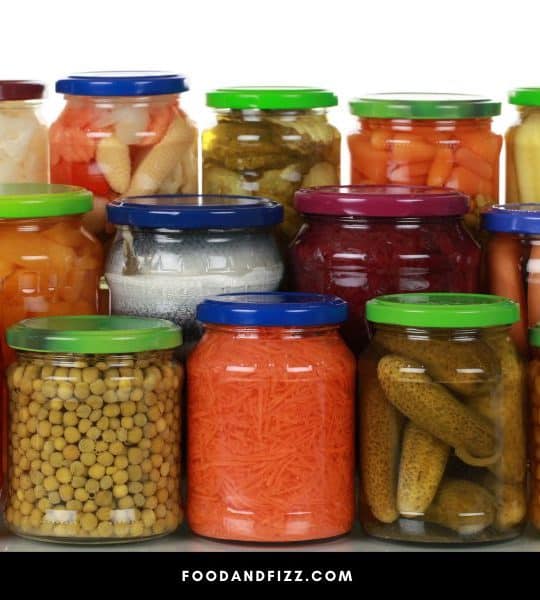Refrigeration is one of the most common techniques applied globally in the present times to slow bacterial growth.
Bacteria exist in foods, air, moisture, water, and surfaces under favorable temperatures. Cold temperatures are not very conducive for bacteria.
Hence refrigeration is an intelligent way to maintain cool temperatures that hinder bacteria growth. In turn, that prevents the food or drinks from spoiling.
Why Do I Have To Refrigerate After Opening But Not Before?
You have to refrigerate after opening but not before because the growth of bacteria needs to be slowed down through refrigeration once opened. When most food products are opened, they get contaminated by bacteria and other airborne microorganisms. As such, refrigeration is necessary after opening to cool the temperatures beyond the point where it becomes difficult for these microorganisms to survive. With a change in temperatures, the refrigeration process prolongs the shelf life of most of these food products.
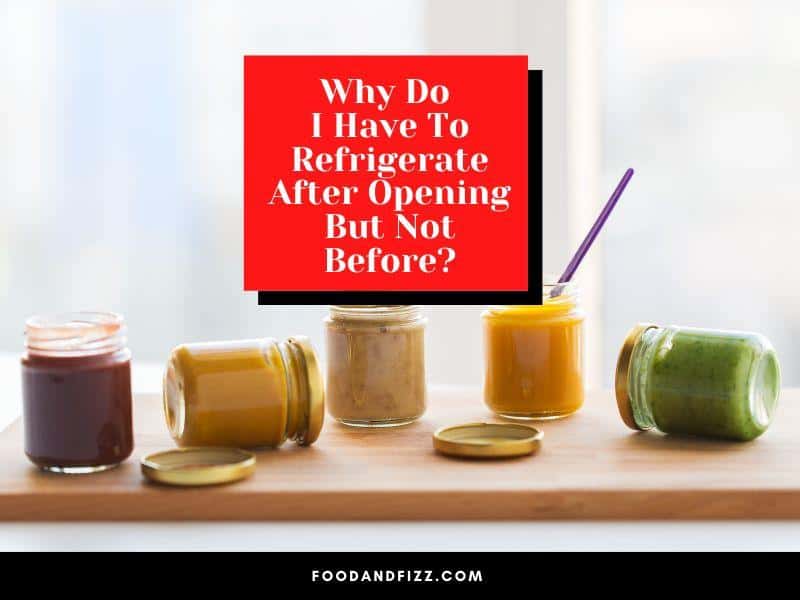
Why It’s Better to Refrigerate After Opening Than Before Opening
Although refrigerating food items before opening them is not harmful, keeping them out of the refrigerator for some time isn’t harmful either.
That’s because most of these food items have undergone the pasteurizing process, killing most bacteria and germs.
As such, there is no likelihood for the food to spoil. However, after opening, the bacteria and germs in the air enter and start to feast on the food material.
In some instances, they lead to chemical changes, which eventually lead to the spoilage of the food. As a precaution, I have habitually refrigerated any food item that can be cooled to low temperatures, whether opened or sealed. However, the unsealed ones always take precedence.
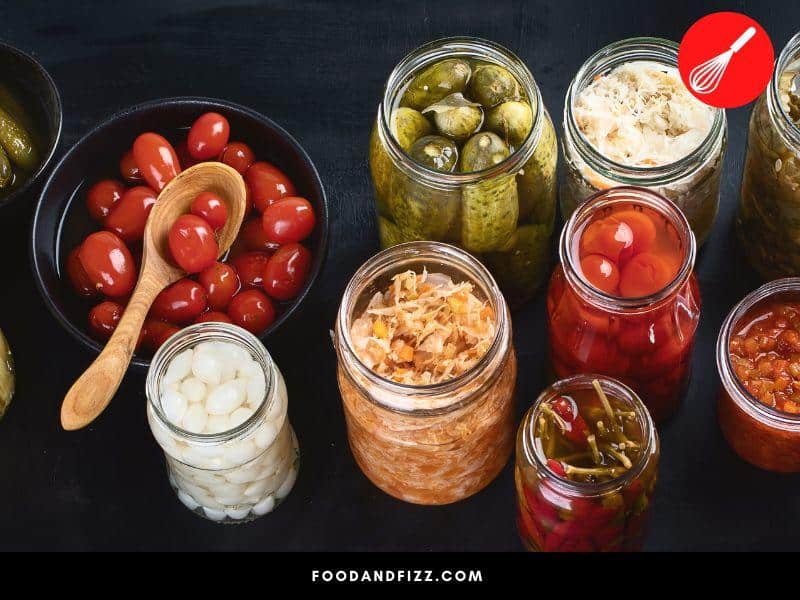
What Happens When I Open Long Life Food Items
I always end up putting any food that remains unsealed in the fridge. That’s because it is more likely to go bad if left unrefrigerated, and there are numerous reasons for that.
Some of the reasons why unrefrigerated long-life food could go bad after opening and remaining unrefrigerated include;
- Microorganism contamination: There are microscopic organisms such as bacteria in the air and surfaces. When a can of long-life food is opened, these microorganisms settle on the surface of the food material and could lead to its spoilage. However, refrigeration alters the conducive environment for microorganisms’ growth, preventing spoilage.
- Safe-keeping: A fridge is like a huge shelf, and storing opened long-life foods would prevent any foreign object, large or small, from falling into the food. Besides, it would prevent the content from pouring.
How Long Can Food Stay Before Spoiling After Opening the Seal?
The time taken for food to spoil after removing the seal from the container depends on several factors. These factors may include;
- Refrigeration: If the seal is removed and the food item refrigerated, then it may take more days to spoil than when not refrigerated. However, if refrigerated, most food items could last up to two weeks.
- Type of food: The time taken for food products to go bad is also influenced by the type of item. Some food products take a shorter time to spoil than others. That means even if refrigerated, some will still spoil faster than others.
- Expiry date: Whether refrigerated or not, if the type of food has reached its expiration date, then it is considered not safe for consumption. Thus discarding it is the only best choice. Remember, you can’t refrigerate to bypass the expiration date.
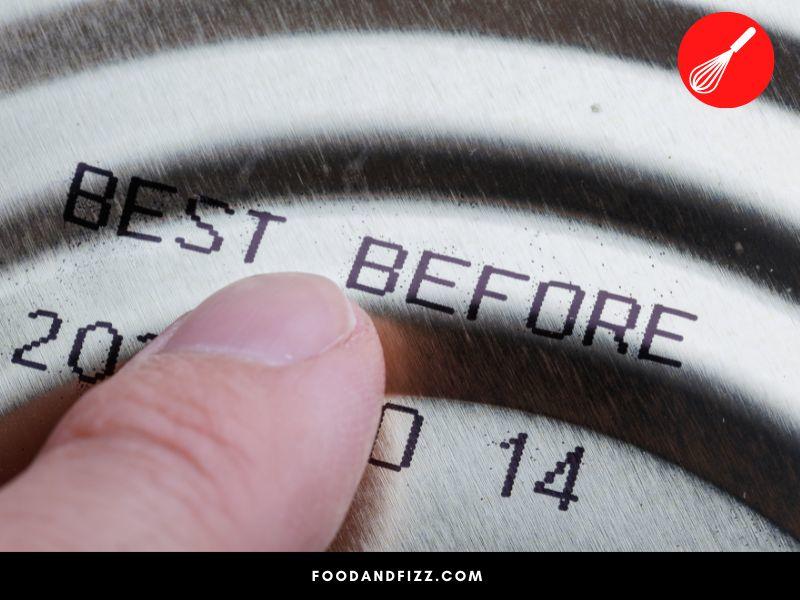
Why Is It Some Food Items Don’t Need Refrigeration Even After Opening?
While it is a must to put certain items under refrigeration to keep them good, others, like sauce, don’t require refrigeration. That’s because of the components used in their processing.
Some ingredients, such as salt and vinegar, are known preservatives. As such, they create an environment that is not conducive for bacteria to thrive. Since, with such preservatives, the food products could last for weeks, it is unnecessary to refrigerate them.
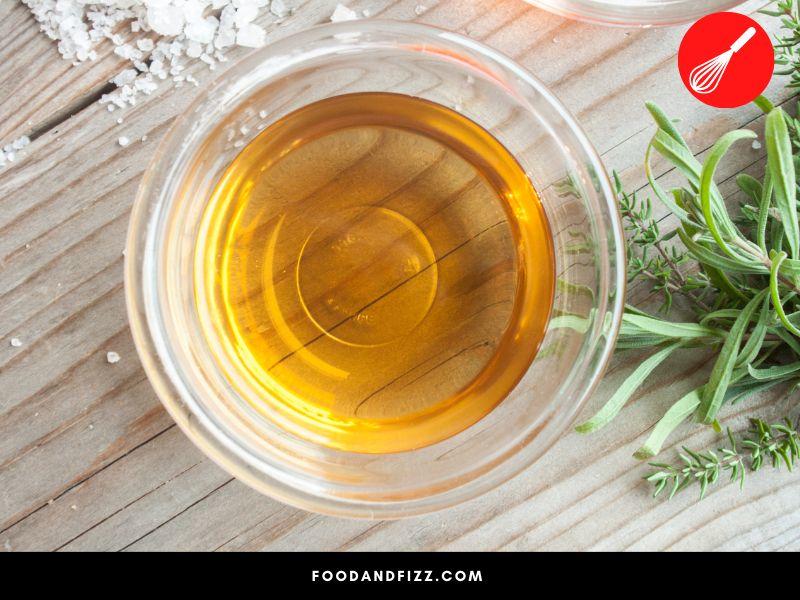
Why Is Refrigeration a Good Thing for Food Items?
I love refrigerating my food items for several reasons. While you might agree with some, others might be disagreeable with you.
Either way, knowing them won’t hurt. Here are my top advantages of refrigerated food items.
- It reduces the chances of food spoilage
- It decreases potential hazards coming from microbial pathogens
- It increases the shelf-life of the food item
- It is suitable for the transportation of perishable goods
- It guarantees me an opportunity to have seasonal foods most days in the year despite the season coming to an end
- It leads to the deactivation of anti-nutritional factors
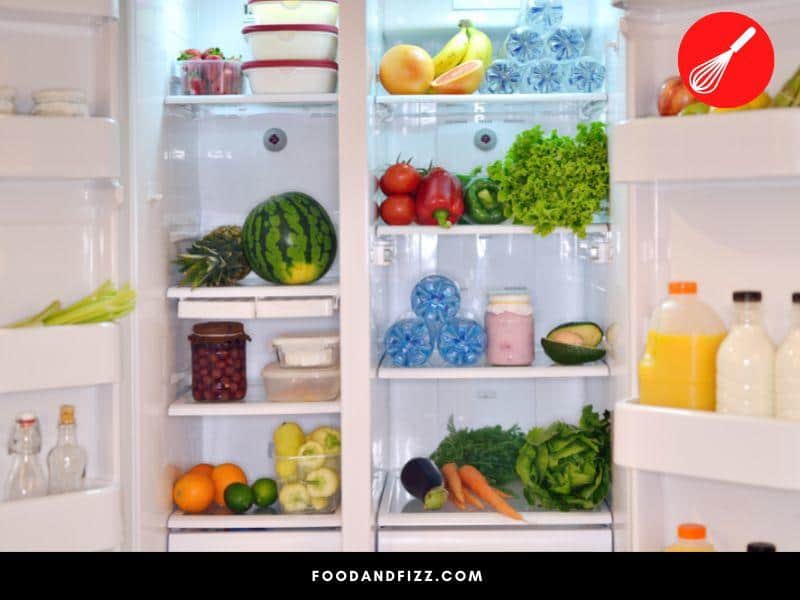
Why Refrigeration Could Be Less Attractive
Although refrigeration has numerous advantages, it also has several disadvantages that make it unattractive. Nevertheless, sometimes when out of options, I still prefer refrigeration despite its shortcomings.
That’s probably because the disadvantages do not pose any health risk. Nonetheless, here are some reasons why refrigeration may not appear so attractive.
- The freezer burn alters the food’s texture and flavor; hence it doesn’t taste fresh
- The refrigerator uses electricity. Thus, it will add to the utility bills
- A fridge is a bulky piece of equipment that consumes a lot of space in the kitchen
Health Complications Emanating From Eating Spoilt Food
I’m always keen when it comes to anything consumable. Eating spoilt food poses several health challenges, ranging from less serious to severe ones.
Easting spoilt food leads to food poisoning. Here are some symptoms of consuming spoilt food.
- A feeling of weakness in the body
- Mild fever
- Headaches
- Abdominal cramps
- Appetite loss
- Nausea and vomiting
- Diarrhea.
Frequently Asked Questions to Why Do I Have To Refrigerate After Opening But Not Before?
Why Should I Refrigerate Food After Opening the Container?
Unsealing the container exposes the food to bacteria in the air. Therefore, refrigeration is necessary to limit the bacteria activity leading to spoilage.
Can I Extend the Expiration Date of a Product By Refrigerating It?
Extending the indicated expiration date is impossible even if you refrigerate it. Once the expiration date is reached, the best option is to discard the product.
Why Do Some Food Containers Have Labels Saying Refrigerate After Opening?
The aim is to stop the food from deteriorating after bacteria exposure. It’s a cautious reminder to the user to refrigerate.
Conclusion to Why Do I Have To Refrigerate After Opening But Not Before?
Refrigeration slows down the proliferation of bacteria that hastens food spoilage and prolongs the shelf life of food.
While food remains sealed, bacteria and pathogens cannot go in and contaminate the food and cause the food to spoil. However, once opened, bacteria now have access to the food. Refrigeration slows down this process of food spoilage and helps make your food last longer.

